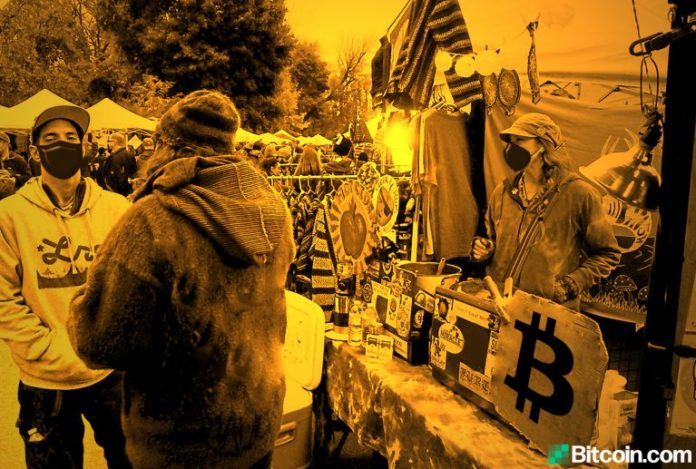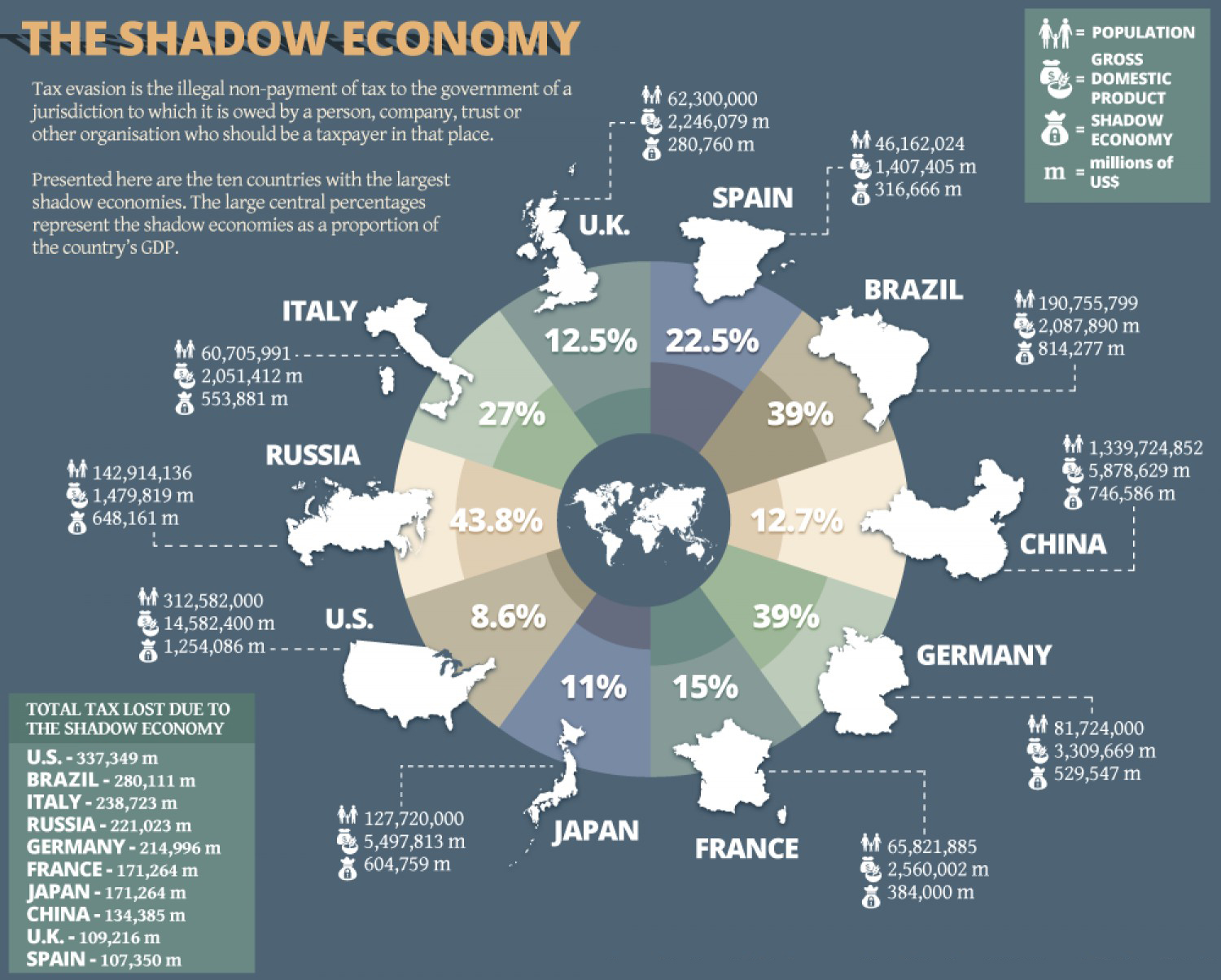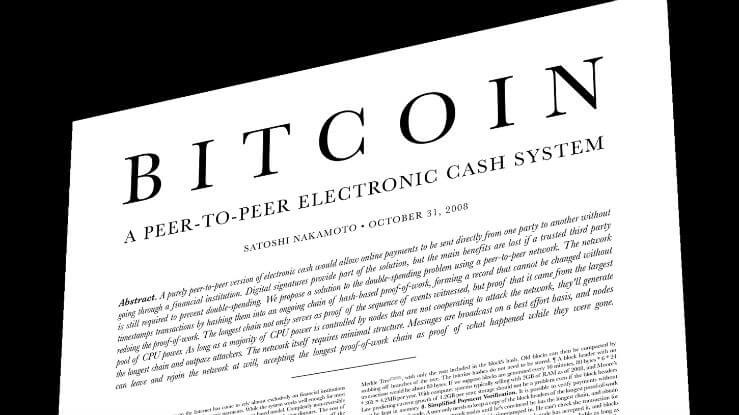
With the recent coronavirus spread and its overall effect on the global economy, some people believe the powers that be are preparing a financial reset. During these times, a number of bitcoiners think a bitcoin-induced form of fiat currency demonetization will take place, otherwise known as ‘hyperbitcoinization.’ However, a few speculators believe digital assets in the crypto economy are actually meant to further the underground shadow economy. In a world filled with overbearing politicians and malicious data-collecting corporations, the surveillance state could easily make cryptocurrencies far more valuable by fueling the world’s shadow markets.
Also read: Evidence Shows Politicians and Wall Street CEOs Expected the Market Crash Well Before Covid-19
A Different Kind of Hyperbitcoinization
A number of bitcoiners think that someday, bitcoin could grow so popular that it becomes the most used money in the world. These speculators believe that the protocol will be uncontrollable and eventually be adopted by everyone leading to hyperbitcoinization. But what if bitcoin covers only a fraction of the global economy, and more specifically the black and gray markets that operate beneath the legal system. Adoption of a crypto that fuels the shadow economy would still be a threat to the manipulated fiat system and it could remain uncontrollable. In fact, estimates show that the shadow economy is the second-largest economy in the world. When bitcoin was born in 2009, the Organisation for Economic Co-operation and Development (OECD) predicted that by this year in 2020 “more than two-thirds of the world’s workers will work in the shadow economy.”

The shadow economy or ‘System D’ isn’t just black market trades like drugs, weapons, and items the government has banned. System D participants include any paid workers who don’t report their financial transactions to the government and the funds remain untaxed. Traditionally, the general public has always assumed that the shadow economy exists in regions with fewer laws and in underdeveloped parts of the world. But that’s not the case at all, as underground financial systems exist in countries with a lot of wealth, high taxes, and significant amounts of regulation. The top countries in the world with the biggest shadow economies include places like the United States, Brazil, Italy, Russia, Germany, France, Japan, the United Kingdom, and Spain.
 With the coronavirus plaguing the world and industry shutdowns squeezing the economy, some individuals think that governments and central bankers are planning a financial reset. Speculators assume that it’s the perfect time to usher in a “New Deal” similar to the way Wall Street and Franklin D. Roosevelt (FDR) restructured the American monetary system. Governments and central bankers are already pushing forms of digital cash and a cashless society, but the systems are centralized and meant to monitor people’s everyday transactions. The nation states could easily reset the financial system right now by creating a cashless system that’s maintained by central bankers and bureaucrats. Bitcoin and decentralized cryptocurrencies could still experience a smaller form of hyperbitcoinization by people who want to escape the “Green New Deal.” Cryptocurrencies could grow immensely valuable, even though they would only be used within the underground financial system. Digital money like bitcoin could easily be valued for far more than six-figures if entire the shadow economy adopted the decentralized asset.
With the coronavirus plaguing the world and industry shutdowns squeezing the economy, some individuals think that governments and central bankers are planning a financial reset. Speculators assume that it’s the perfect time to usher in a “New Deal” similar to the way Wall Street and Franklin D. Roosevelt (FDR) restructured the American monetary system. Governments and central bankers are already pushing forms of digital cash and a cashless society, but the systems are centralized and meant to monitor people’s everyday transactions. The nation states could easily reset the financial system right now by creating a cashless system that’s maintained by central bankers and bureaucrats. Bitcoin and decentralized cryptocurrencies could still experience a smaller form of hyperbitcoinization by people who want to escape the “Green New Deal.” Cryptocurrencies could grow immensely valuable, even though they would only be used within the underground financial system. Digital money like bitcoin could easily be valued for far more than six-figures if entire the shadow economy adopted the decentralized asset.

Cypherpunks Write Code – E-Money & Daemon
The cypherpunks in the ‘90s discussed the rise of a private digital cash system that bolsters market anarchy and a new monetary system. In the 1994 Wired article “E-Money – That’s What I Want,” the editorial describes how the cypherpunks envisioned a brave new world that leverages a digital cash system. “The killer application for electronic networks isn’t video-on-demand,” explained Wired columnist Steven Levy. “It’s going to hit you where it really matters – in your wallet. It’s not only going to revolutionize the net, but it will also change the global economy,” Levy stressed. Back then, no one had heard of Satoshi Nakamoto and people’s concepts of digital cash stemmed from people like the renowned cryptographer David Chaum, the founder of Digicash. Other cypherpunks like Tim May and Wei Dai, however, envisioned a world with untraceable digital cash and the concepts of crypto anarchy.

These visionaries who came before Nakamoto predicted systems that not only increased economic efficiency, but also the ability to transact across any border without censorship. Of course, individuals like Tim May forecasted that an underground electronic cash system could make big problems for the nation states. With an untraceable digital asset, it could destroy the benchmark rates of legal tender, increase tax evasion and money laundering, and disrupt the world’s money supply. If digital cash is just as convenient as today’s credit cards but also facilitates private financial transactions, it will likely continue to grow stronger. But unfortunately, it also will be attacked a lot more as well, as a true untraceable electronic cash system that’s not controlled by a single entity would be the nation states’ archnemesis.

The techno-thriller “Daemon” written by novelist Daniel Suarez describes a system that is similar to decentralized cryptocurrencies like bitcoin. In the novel, an individual publishes a new type of software that creates a cyber-space fueled shadow economy. Essentially, system users are rewarded for developing “decentralized hubs” and peer-to-peer networks by leveraging the Daemon. The very same thing could happen to bitcoin and the crypto economy to where the poor, middle class and even the rich can participate in hiding money from big brother’s watchful eyes. In the novel Daemon, Suarez tells the readers about online web markets that are hidden from the general public and operatives leveraging the financial system to exchange important data. 12 years before Daemon was published, the cypherpunk Eric Hughes also envisioned “anonymous systems.”
“We the Cypherpunks are dedicated to building anonymous systems,” Hughes wrote in 1993. “We are defending our privacy with cryptography, with anonymous mail forwarding systems, with digital signatures, and with electronic money,” he added. Hughe’s continued:
Cypherpunks write code. We know that someone has to write software to defend privacy, and since we can’t get privacy unless we all do, we’re going to write it. We publish our code so that our fellow Cypherpunks may practice and play with it. Our code is free for all to use, worldwide. We don’t much care if you don’t approve of the software we write. We know that software can’t be destroyed and that a widely dispersed system can’t be shut down.

Shadow Market Money Could Be the ‘Ultimate Expression of Intentionality’
Of course, a number of people begging governments to approve cryptocurrencies like bitcoin and who hope the status quo adopts a strong digital currency, really don’t want the shadow market associated with the technology. Despite what they think, crypto transactions are still being used to skip taxes today and pay for things on the darknet. For instance, a report published in 2018 finds that illegal activity stemming from BTC transactions accounted for 44% of all transactions. It’s quite possible that bitcoin and cryptocurrencies won’t serve the white markets and traditional bankers and a slew of bitcoiners will be fine with that type of result. In 2015, the founder of Defense Distributed (DD), Cody Wilson told me in an interview how he would probably celebrate bitcoin being driven underground.
“Without a big expression of intentionality to what is considered not the polite things to do with bitcoin — specifically money laundering, specifically private access to your coin, holding your own keys,” Cody stressed during our interview. “Without projects that express these principles, you have nothing of what you want with a revolution. This leaves me to proclaim that most people involved with bitcoin were not serious about that in the first place.”
What do you think about a shadow economy hyperbitcoinization event? Let us know in the comments section below.
The post Hyperbitcoinization: Visions of Bitcoin Fueling the Post Covid-19 Shadow Economy appeared first on Bitcoin News.

Bitcoin.com is author of this content, TheBitcoinNews.com is is not responsible for the content of external sites.
Our Social Networks: Facebook Instagram Pinterest Reddit Telegram Twitter Youtube










